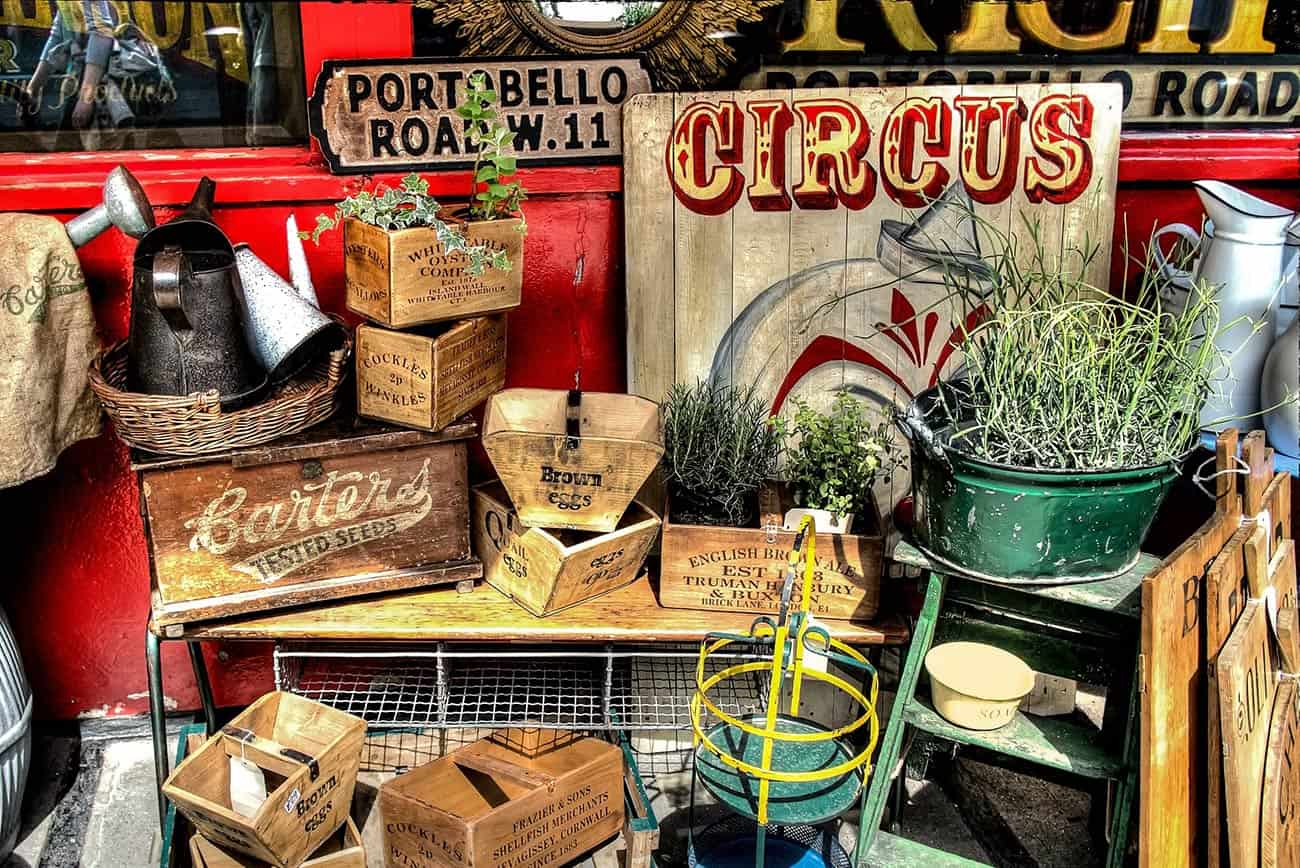An excess of caution? The dead weight of bureaucracy? The purported straitjacket of ‘solidarity’? A rash of fairly spiteful claims have been levelled against the Old Continent on why it has done such a laggardly job of vaccinating its population against coronavirus.
The Brexit Brain-Buster: the ramifications of Brexit go well beyond the EU

With the consequences becoming clearer, the Brexit brain-buster must be sewing the seeds of doubt among some monarchist Australians, including those former Prime Ministers who variously backed and congratulated the Brits for choosing to go it alone in last year’s Brexit referendum.
French election: Fillon & Le Pen — a tale of moral laxity

A Shakespearian twist is required, perhaps, to comprehend the astonishing scenario of moral laxity and personal enrichment, playing out currently in the Old World kingly court of French electoral politics.
The good German – Has Merkel given up on her refugee policy?

The naysayers are calling it a climbdown, but is it? German Chancellor Angela Merkel has stepped back abruptly from her open-arms policy on refugees—or has seemed to. The slogan ‘We Can Do It’ (Wir schaffen das) — memorably hailed as heroic by an Auschwitz survivor in the German parliament earlier this year—has become ‘almost an empty formula’ given the daunting challenge of integrating refugees en masse.
‘If I could, I would rewind time by many, many years, to better prepare myself, the whole government and all those in positions of responsibility, for the situation that caught us unprepared in the late summer of 2015’, the Chancellor said.
Made after her Christian Democrats got a shellacking in Berlin regional elections, the comments were widely interpreted as Merkel’s mea culpa. But an intriguing alternative view discerned the expression — the resurgence even—of Merkel’s conciliatory side, amply evident after the Brexit vote but obscured until now in the ‘storm and stress’ of the refugee crisis.
This was the Chancellor reaching out to pacify her ruling conservative Christian Democratic (CDU)/Christian Social (CSU) bloc, which wants a tougher tone on refugees, and voters who have flocked to the far-right Alternative for Deutschland (AfD) in four regional elections since March. Less a climbdown, then, than clearing the way: broadcaster Deutsche Welle said Merkel’s remarks confirmed that she would run for a fourth term in federal elections next September.
Merkel’s re-election prospects have dwindled due to the local election results but are by no means negligible. The CDU has no obvious replacement and her national approval ratings are still in the 40s. (By way of comparison, French President François Hollande is at 15.) The main German opposition Social Democrats (SPD), with no charismatic leader, has also taken a slide, equally losing votes to the AfD.
Yet Merkel’s diminished popularity should be taken in the context of the scale of her decision last northern summer to wave through to Germany tens of thousands of refugees, mostly from Syria and the Middle East, stranded on a railway platform in Budapest and the socalled Balkan route north from Italy and Greece. Since the Syrian civil war erupted like a geopolitical Chernobyl, Germany has taken well over a million refugees — that is, more than Australia has resettled since the end of the Second World War. The implications, enormous for policy and in terms of national and historical identity, have shaken Germany to the core.
Merkel’s decision is frequently denounced in terms of the challenge it poses — the influx of refugees — rather than the primacy of the values it embodies: humanity, tolerance and the power of reconciling, middle-ground compromise: host countries have obligations to refugees and they to their host countries.
At issue is a kind of rendezvous with global justice, a balancing act between the war-wracked developing world (which knows ‘how the other half lives’ via new media) and Europe’s foundation philosophy, at a time when the United States is being tempted by Donald Trump’s racially divisive approach. Not only have wars in the Middle East killed millions of people since the Gulf War in 1990 but also two recent British reports (Chilcot on Iran and a parliamentary group on Libya) have shown that half-cocked Western attempts at nation-building post-intervention have stuffed up monumentally. Surely we in the West have a moral responsibility to take refugees, even if temporarily, fleeing wars we ignited or ignored or for which we have failed to find a diplomatic solution.
Elsewhere in Europe there has been painfully little echo of Merkel’s humanitarian approach, neither on the Left, mired in confusion, nor on the Right, which has hardened its anti-refugee rhetoric since the start of the crisis in France, Britain and Austria. (As for increasingly anti-liberal Eastern Europe, well, someone must have forgotten to tell the political elite what EU membership is supposed to mean.)
But the corollary of Merkel resisting populism’s rise is that, in comparable terms, the German people have, too. Germany has its ugly history, of course, irreparable for some observers, but the country has stepped up to the plate on refugees and this should be plainly acknowledged, as Obama finally did at the United Nations recently, also citing Canada. Put another way, what might be the approval ratings of a British prime minister or a French president — or an Australian prime minister, for that matter — if they had decided to do as Merkel has done?
Perhaps in ten or twenty years the countries that had the courage and commitment to take refugees in substantial numbers in 2015–16 will have redressed their labour-force imbalances, reversed a declining birth rate and paid for their pension systems. Those prepared to hear the cry of the weak in the long night of the Middle East—facing political uncertainty, even humiliation—will have turned things around, be out front and winning.
Angela Merkel is expected to announce whether she will stand for re-election before the CDU party conference in December.
Bumbling Boris the Confidence Trickster

Where EU leaders have got it wrong is that Brexit is less a crisis for Britain (though it is that), than the latest manifestation of a deep-seated European malady. A sense of the risk of the EU unravelling is alive in the air in Germany and France because the fear is that Brexit has launched a dangerous dynamic of EU disintegration that, if uncontrolled, may, like Brexit itself, prove unstoppable. Perhaps this is something of which David Cameron, but also Boris “Opt-Out” Johnson, are painfully aware.
Refugee crisis in Europe: civilisational clash or the necessity of reconciliation?

One of the remarkable ironies of the current refugee crisis in Europe is that the One World idealists of yesterday have become the bearers of a certain realpolitik today. As critics of German Chancellor Angela Merkel would have it, ‘those people there’—refugees fleeing Year Zero destruction in Syria, Afghanistan and Iraq—are now, well, over here, with us in Europe and the West.
The realpolitik exists in both macro and immediate terms. The crisis has made clear that immigration policy is no longer a matter of whether to accept non-European non-Christians in our midst but is now about how we might adopt and integrate them, and they us, of course — because it must work both ways. A reconciling, mutually engaging relationship is required, because the civilisational ‘clash’ of the major alternatives doesn’t bear thinking about, and for practical reasons of…realpolitik. Whatever happens to the passport-free Schengen zone comprising twenty-six European countries, mass migration from poor Africa and the war-torn Middle East won’t stop when the guns finally
fall silent in Syria. Only a few kilometres of water separates Turkey from Europe’s southern borders, and desperate, shell-shocked people — primed with a detailed awareness of how the ‘other half’ lives due to social media — want a better life for themselves and their families.
And in the macro sense? Islam is now the world’s fastestgrowing religion, with adherents likely to compose 29.7 per cent of the world’s population by 2050 (by comparison, Christians will make up 31.4 per cent). A Pew Research study last year estimated that Christianity would lose about ten million people to atheism and agnosticism in the period to mid-century. Others risk being ‘lost’ to Islam—especially young people, because, as the late British historian Tony Judt observed (in his 2005 Postwar, A History of Europe Since 1945), Christianity is increasingly associated in countries like France and Spain with old age, isolation and the emptying rural backcountry. Whereas Islam is increasingly a source of communal identity and collective pride in the big immigrant suburbs of London and Paris, Christianity is increasingly seen there as a religion for Mum and Dad, who don’t go to church much any more anyway. (In France as a whole, only one adult in seven acknowledges even attending church and then on average just once a month; in Britain and Scandinavia the figures are even lower.)
As European Parliament president Martin Schulz said earlier this year, the EU, with a population of more than 500 million, ought to be able to absorb a million refugees, especially if all member countries play their part. Surely it is unjust that Germany—albeit the richest and largest EU country—is having to bear such a brunt: 1.1 million new arrivals in 2015. By contrast, Britain has pledged to take 20,000 refugees over five years.
Whereas Islam is increasingly a source of communal identity and
collective pride in the big immigrant suburbs of London and
Paris, Christianity is increasingly seen there as a religion for Mum
and Dad, who don’t go to church much any more anyway.
Pan-European concerns about overcrowding and social cohesion are of course understandable but must seem entirely relative seen from, say, Istanbul or Cairo, when Europe is home to just 9 per cent of the world’s population but produces 25 per cent of its GDP and undertakes 50 per cent of its public spending (figures Merkel has used). Creative policy-making is required, and there’s already been some in Germany and Sweden, to streamline processing, spread settlement and get refugees into language training and jobs.
Unlike Australia, Europe has been historically disinclined to use immigration as a policy tool to compensate for flagging birth rates—perhaps mistakenly, given that nineteen of the twenty countries with the lowest birth rates are European (Japan is the exception). It’s amazing for a multicultural Australian to contemplate, but a certain Britain and particularly a certain France still looks back on post-colonial immigration as the period when the break was regrettably, if necessarily, made with a poetically changeless old Europe — that dirty little train steaming out of the station, the battalion band playing for all it was worth, purple afternoons in the hills and all that, to borrow from English playwright John Osborne describing British India.
Immigration from the old colonies was something imperial Europe assumed that it had to accept—not so much as a modernising opportunity necessarily, but as part of the post-imperial burden, for France regarding North Africa and for Britain, the Indian subcontinent.
The events of New Year’s Eve in Cologne, when women were assaulted and immigrant men were the chief culprits, have raised important questions of cultural interface, social cohesion and capacity. Relative to the West, it is probably true that even the most enlightened Muslim societies impose varying degrees of restrictions on women. But one feels uncomfortable, or ought to, bundling the world’s fifty Muslim-majority countries into one basket. As Melbourne University professor Abdullah Saeed has pointed out, there is substantial diversity and difference between the ways men and women interact in different Muslim countries, and frequently these are culturally determined. Often depicted in the West as deeply conservative, Iran, for example, has female professors, parliamentarians and bureaucrats at all levels of society, while in Turkey, Indonesia and Bangladesh, women have held the positions of prime minister and president.
Since the refugee crisis began, the human drama of media interviews with new arrivals in Germany has been eye-opening. The suggestion is often that, because refugees come from countries that don’t respect democratic freedoms, they won’t respect them when they come to a new country, but it is precisely because they are from those countries that they do respect such freedoms. On the BBC an elegant Syrian with excellent English patiently explained her understanding of Western freedoms (of expression, association and the media), before adding that she did not want to have to jettison her religion. Perhaps we’ll know that success on integration is approaching when she no longer feels that we think that she should.
It is often said that the Australian experience of immigration is not applicable to Europe. Girt by sea, we’ve run a managed immigration program for more than fifty years because we can (like Japan or Canada). But we do know from national experience that second- and thirdgeneration migrants, as well as firstgeneration migrants, tend to want to integrate—that is the usual, even natural propensity. If that isn’t the case in parts of Europe, then why not? And the ‘why’ — that why there — lies at the heart of the challenge of large-scale immigration, or at least of dealing with the problem as it actually is. Of the realpolitik, if you will.

